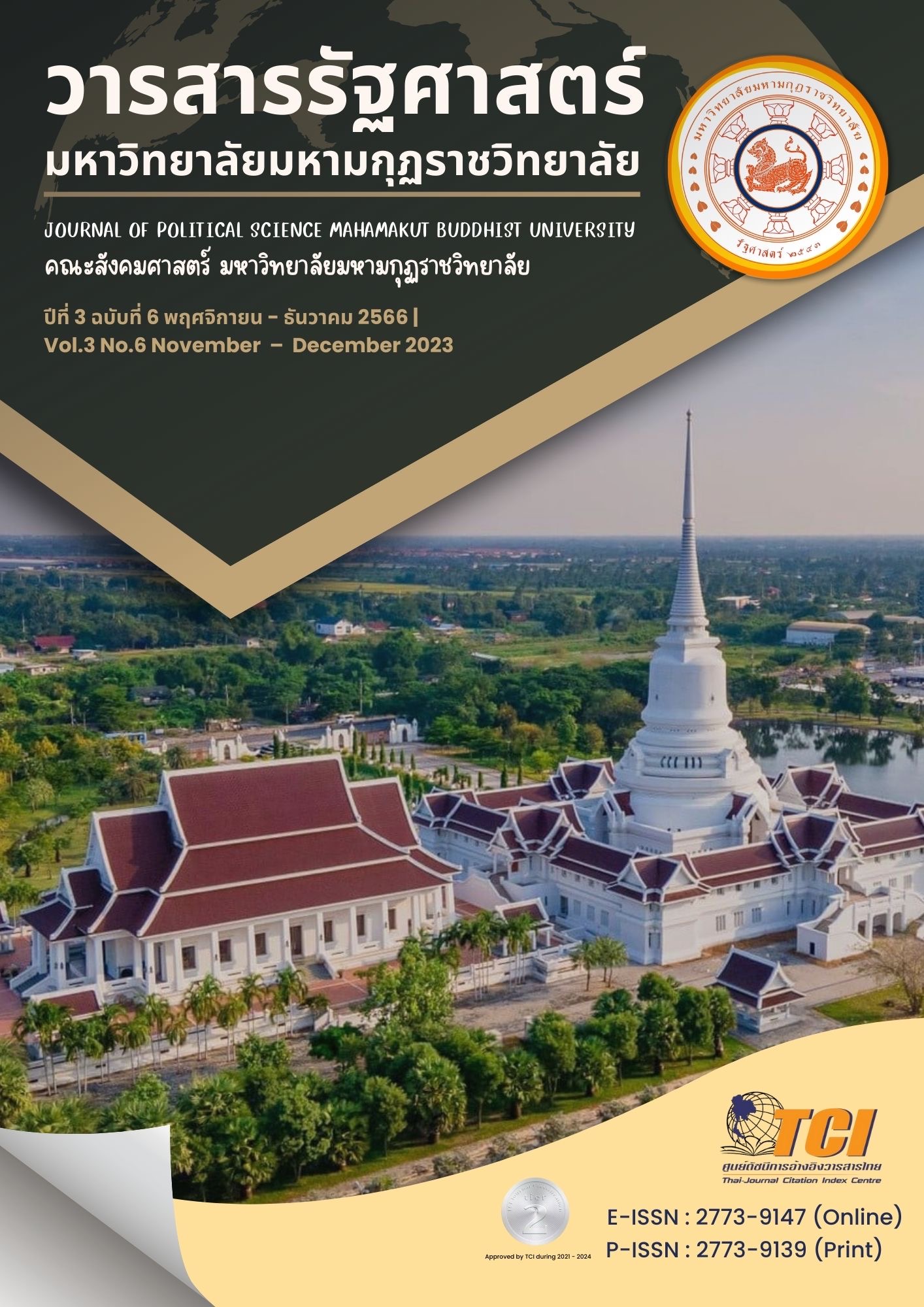ON HESIOD’S THEOGONY: TO UNDERSTAND THE CONCEPTS OF MYTHOS AND ALĒTHEIA
Main Article Content
Abstract
This article has an aim to study Hesiod’s Theogony in order to understand Mythopoeic Methodology, the methodology through which ancient Greek poets explained the birth of nature and the world in the pre-philosophical period. Theogony is considered to be the best example of cosmogony in the ancient Greek era. Myth, in the form of oral poetry, employs two devises, analogy and personification, to explain the idea of nature and truth. Besides the idea of remembering and finding, the concept of “truth” in the mythopoetry demonstrates the idea of universality and the beginning of things (ἀρχή- archē). This, therefore, suggests that there is a continuity of thoughts between the period of mythopoetry and philosophy. The article uses close Reading and Etymology as its study methods. Therefore, it is recommended that the Bachelor of Laws program be offered at more Buddhist universities in Thailand to cover the provision of public services in legal education in all areas.
Article Details

This work is licensed under a Creative Commons Attribution-NonCommercial-NoDerivatives 4.0 International License.
References
Barry B. Powell. (1995). Classical myth. Englewood cliffs, N.J.: Prentice Hall.
Euripides. (Online). Electra. Retrieved 11 [November 2023] form http://www.perseus.tufts.edu/hopper/text?doc=Perseus%3Atext%3A1999.01.0169%3Atext%3DPhaedo%3Asection%3D61b
Evelyn Underhill. (1912) Mysticism: A Study in Nature and Development of Spiritual Consciousness. (4th ed). London: Methuen & Co. Lte
Frankfort, H., ed. (1949). Before Philosophy: The Intellectual Adventure of Ancient Man. Harmondsworth: Penguin Books.
Hamilton Steele Savage., ed. (1969). Mythology. New York : New American Library
Hesiod. (Online). Works and Days. Retrieved 11 [November 2023] form http://www.perseus.tufts.edu/hopper/text?doc=Perseus%3Atext%3A1999.01.0131%3Acard%3D174
Homer. (Online). Odyssey. Retrieved 11 [November 2023] form
http://www.perseus.tufts.edu/hopper/text?doc=Perseus%3Atext%3A1999.01.0131%3Acard%3D174
Lombardo. (2016). Hesiod. In Stephen M. Trzaskoma, R. Scott Smith, and Stephen Brunet., ed. (2016). Anthology of classical myth: Primary Sources in Translation. (2th ed). Indianapolis: Hackett Publishing Company.
M.M. Willcock., ed. (1978). The Iliad of Homer Books I-XII. Edited with Introduction and Commentary. New York: St Martin's Press.
Naddaf, Gerard. (2005). The Greek concept of nature. New York: States University of New York Press.
Plato. (Online). Phaedo. Retrieved 11 [November 2023] form http://www.perseus.tufts.edu/hopper/text?doc=Perseus%3Atext%3A1999.01.0169%3Atext%3DPhaedo%3Asection%3D61b
Robert Lamberton. (1988). Hesiod. New Haven: Yale University Press
Rose Cherubin. (2009). Aletheia from Poetry into Philosophy. In William
Wians., ed. (2009). Logos and Muthos: Philosophical Essays in Greek Literature. New York: States University of New York Press.
S. Marc Cohen, Patricia Curd, C.D.C. Reeve., ed. (2011). Readings in ancient Greek philosophy : from Thales to Aristotle. (4th ed). Indianapolis: Hackett Publishing Company.
Stephen M. Trzaskoma, R. Scott Smith, and Stephen Brunet., ed. (2016). Anthology of classical myth: Primary Sources in Translation. (2th ed). Indianapolis: Hackett Publishing Company.
William Wians., ed. (2009). Logos and Muthos: Philosophical Essays in Greek Literature. New York: States University of New York Press.
Ἡσίοδος. (1975). Θεογονία. Αθήνα: Καλή (ελαφρά σημειωμένο με στυλό).ī


